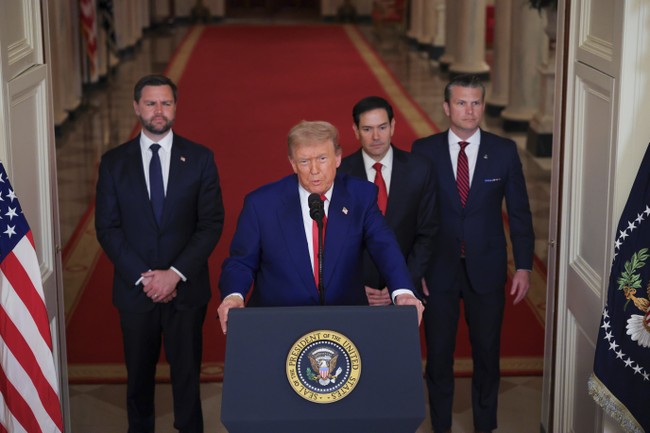
I have been wondering about what Iran’s intentions regarding the Strait of Hormuz were, and now we have the answer: they intend to close the chokepoint between the Persian Gulf and the Gulf of Oman. At least that was the unanimous decision by the Iranian Parliament. An executive security committee has the final say.
Iran orders closure of Strait of Hormuz — putting one-fifth of world’s oil supply at risk https://t.co/6u34Wq2EQ6 pic.twitter.com/8iw7DF8kIB
— New York Post (@nypost) June 22, 2025
Somewhere around 25% of the world’s oil travels through the Strait on its way to market, making control over the Strait about as strategically significant as a place can be.
BREAKING 🔴
Al Arabiya: Iran’s parliament approves plan to close the Strait of Hormuz, pending final approval from security authorities.
This won’t end well for them. pic.twitter.com/HOeJ8YLlIH
— Open Source Intel (@Osint613) June 22, 2025
As Iran’s military options have diminished, its proxies have abandoned it. That would seem to make closing the Strait an obvious choice to up the pressure on the West. The Houthis in Yemen are pledging to join in, closing the Red Sea.
🚨 BREAKING: Yemen declares: “We are officially entering the war. Keep your ships out of our waters — or face the consequences.”
The Red Sea just got hotter. pic.twitter.com/7akd6nSRVx— Sahar Emami (@iamSaharEmami) June 22, 2025
Closing shipping lanes in the region will definitely hurt.
Close to 50 large oil tankers are scrambling to leave the Strait of Hormuz. The parliament of Iran has just voted for closing the Strait.
[🗾 MarineTraffic] https://t.co/rHtGhdJHuG pic.twitter.com/SXreO1fJTj
— Massimo (@Rainmaker1973) June 22, 2025
But it’s not that simple. Iran relies heavily on the Strait for its own economy. Its oil also flows through there, and its relationship with China is entirely dependent on selling Iranian oil at a discount to the country. Closing the Strait–even if the US and its allies didn’t strike Iranian naval and missile assets in the region–would have devastating effects on Iran.
🚨 JUST IN: Marco Rubio RESPONDS to Iran potentially closing the Strait of Hormuz.
“It will be another terrible mistake. It’s economic suicide for them if they do it, and we retain options to deal with that.”
— Eric Daugherty (@EricLDaugh) June 22, 2025
No doubt, the United States has wargamed this out and has countermoves planned. Iranian naval assets would be sitting ducks, of course, but mobile missile launchers in the region would be a different story. As was seen with the Houthis and the Red Sea, threatening shipping is not especially difficult, and nobody wants to risk massive oil spills in the Persian Gulf if it can be helped.
Ed predicted this.
Let’s see if the Iranians retaliate by shutting down the Strait of Hormuz. It’s their last card. https://t.co/Snz3KHEMqs
— Ed Morrissey (@EdMorrissey) June 21, 2025
It’s a very high-stakes move, but it is the last one Iran has short of capitulation, and capitulation doesn’t seem to be in their vocabulary.
Doesn’t most of the oil to China come through the Strait of Hormuz? Closing the Strait would also hurt Shia-ruled Iraq and pro-Iranian Qatar. This would be a huge self-inflicted wound by Iran. https://t.co/9favQSwxmx
— Alberto Miguel Fernandez (@AlbertoMiguelF5) June 22, 2025
The war between Iran and Israel has not severely impacted oil prices, but that is likely to change should Iran succeed in closing the Strait. Even the threat of closure is causing a spike in prices.
The US has obviously been prepared for this, explaining the massive naval buildup in the region over the past week. With the exception of cruise missile strikes from a submarine, none of those assets were used in our attack last night. The buildup was to deter or deal with the aftermath.
About 28 billion dollars worth of U.S. Navy in the area. pic.twitter.com/Ec5biCm4kw
— Nick Sortor (@nicksortor) June 22, 2025
The Houthis already know what they are facing by rejoining the conflict, and Iran must know that this is the endgame. Call it the nuclear option. It’s hard to see how China can remain friendly with Iran if it loses access to cheap oil.
We live in interesting times.












